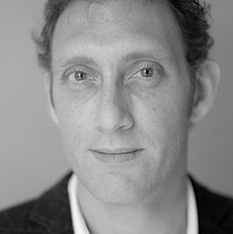We are glad to announce that Enago in collaboration with Vilnius Gediminas Technical University (VGTU) and Kaunas University of Technology (KTU) will be conducting a series of Author Workshops for researchers across Lithuania.
The workshops will be interactive and will focus on providing practical advice and quick tips on writing better scientific manuscripts, latest challenges and developments in academic publishing, and dealing with journal rejection as an important aspect of the publication process.
At the end of the workshops, all participants will also receive a Certificate of Participation issued by Enago.
| Time | Topic |
|---|---|
| 09:30-10:00 | On-site Registration |
| 10:00-10:10 | Opening Plenary |
| 10:10-12:00 | Topic 1: Academic Publishing—Writing, Submission, and Successful Publication |
| 12:00-13:00 | Break |
| 13:00-14:30 | Topic 2: Dealing with Journal Rejection |
| 14:30-14:45 | Introduction to Enago’s Author Services |
| 14:45-15:15 | Q&A Session |
| 15:15-15:30 | Closing Remarks |
19 September—VGTU Senate Hall (SRC 307)
Address: Saulėtekio al. 11, LT-10223 Vilnius, Lithuania
20 September—Santaka Valley (Conference Room No. 1)
Address: K. Baršausko g. 59, LT-51423 Kaunas, Lithuania

Duncan Nicholas (UK),
Publication and Training Consultant, Enago Academy
Former Managing Editor, Taylor & Francis Group
This presentation is primarily targeted toward researchers who wish to submit their papers to top-notch international journals but face difficulty with the correct usage of language and grammar. In a system where experts from respective fields need to assess the validity, significance, and originality of the described work, it is imperative that the language quality of the articles submitted to such journals is good to avoid rejection at the peer review stage. Unfortunately, many papers that do not satisfy internationally accepted language requirements are rejected by the journal editors themselves and do not even reach the stage of peer review.
After this session, you will have more information about the following:
This presentation is primarily targeted toward helping researchers in handing rejections from journals, and will also help early-stage researchers improve first-time acceptance of their manuscripts. The advancement of research hinges on the dissemination of new discoveries by their publication in peer-reviewed international journals. At the heart of academic publishing, peer review leads to over 1.5 million published scholarly manuscripts every year. Although the number of published papers is increasing year-on-year, this iterative selection process also results in approximately 60% rejection rate, including 21% rejection after preliminary editorial screening.
After this session, you will have more information about the following: